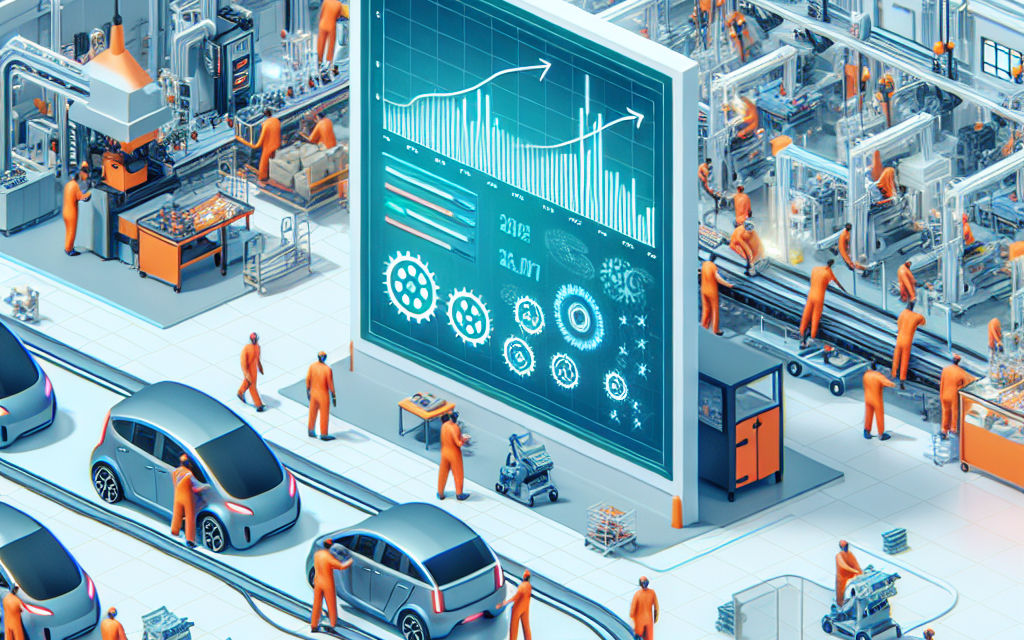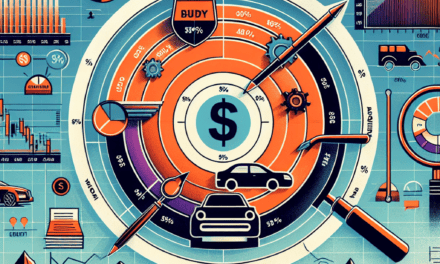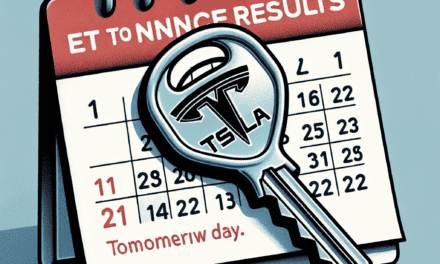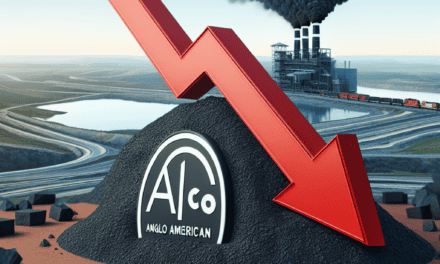“Rivian: Pioneering the Path to Electric Adventure and Innovation.”
Introduction
Rivian’s success story is a testament to innovation, resilience, and strategic foresight in the rapidly evolving automotive industry. Founded in 2009 by RJ Scaringe, Rivian initially operated under the radar, quietly developing its vision for sustainable transportation. The company’s breakthrough came with the unveiling of its all-electric R1T pickup truck and R1S SUV, which captured the imagination of consumers and investors alike with their blend of rugged capability and eco-friendly technology. Rivian’s commitment to sustainability, coupled with its focus on adventure-ready vehicles, positioned it uniquely in the market, attracting significant investments from industry giants like Amazon and Ford. These partnerships not only provided financial backing but also strategic advantages, such as Amazon’s order for 100,000 electric delivery vans, which underscored Rivian’s potential in the commercial sector. As Rivian scaled its production capabilities and expanded its product lineup, it maintained a strong emphasis on quality and customer experience, further solidifying its reputation. The company’s successful IPO in 2021 marked a significant milestone, reflecting investor confidence and propelling Rivian into the spotlight as a formidable player in the electric vehicle landscape. Through strategic innovation and a clear vision for the future, Rivian has emerged as a thriving division in the automotive world, poised to drive the transition to sustainable transportation.
Rivian’s Innovative Approach to Electric Vehicles
Rivian’s innovative approach to electric vehicles has positioned the company as a formidable player in the rapidly evolving automotive industry. Founded in 2009 by Robert “RJ” Scaringe, Rivian has distinguished itself through a commitment to sustainability, cutting-edge technology, and a unique business model that sets it apart from traditional automakers. As the world increasingly shifts towards electric mobility, Rivian’s success story is a testament to the power of innovation and strategic foresight.
At the core of Rivian’s success is its focus on creating electric vehicles that cater to the adventurous spirit of its customers. Unlike many of its competitors, Rivian has concentrated on developing electric trucks and SUVs, a segment that has historically been dominated by gasoline-powered vehicles. This strategic decision has allowed Rivian to tap into a market that is both underserved and ripe for disruption. By offering vehicles that combine the ruggedness and versatility of traditional trucks with the environmental benefits of electric power, Rivian has carved out a niche that appeals to environmentally conscious consumers who do not want to compromise on performance or capability.
Moreover, Rivian’s commitment to sustainability extends beyond the vehicles themselves. The company has made significant investments in building a robust charging infrastructure, recognizing that the availability of convenient and reliable charging options is crucial for the widespread adoption of electric vehicles. Rivian’s Adventure Network, a series of fast-charging stations strategically located near popular outdoor destinations, exemplifies this commitment. By ensuring that its customers can easily charge their vehicles while exploring the great outdoors, Rivian enhances the overall ownership experience and encourages more people to make the switch to electric.
In addition to its focus on sustainability, Rivian has embraced technological innovation as a key driver of its success. The company’s vehicles are equipped with advanced features such as over-the-air software updates, which allow for continuous improvement and customization of the driving experience. This capability not only keeps Rivian’s vehicles at the cutting edge of technology but also fosters a strong sense of community among its customers, who can share feedback and suggestions that directly influence future updates.
Furthermore, Rivian’s innovative approach extends to its manufacturing processes. The company has adopted a vertically integrated model, controlling everything from design and engineering to production and sales. This approach allows Rivian to maintain high standards of quality and efficiency while also reducing costs. By owning its supply chain, Rivian can quickly adapt to changes in demand and ensure that its vehicles are produced in an environmentally responsible manner.
Rivian’s success is also bolstered by strategic partnerships and investments. The company has attracted significant backing from major players such as Amazon and Ford, which not only provides financial support but also opens doors to valuable resources and expertise. These partnerships have enabled Rivian to scale its operations rapidly and expand its market presence, further solidifying its position as a leader in the electric vehicle industry.
In conclusion, Rivian’s innovative approach to electric vehicles has been instrumental in its rise to prominence. By focusing on sustainability, technological advancement, and strategic partnerships, Rivian has created a thriving division that is well-positioned to capitalize on the growing demand for electric mobility. As the automotive landscape continues to evolve, Rivian’s success story serves as an inspiring example of how innovation and vision can drive meaningful change in an industry poised for transformation.
The Role of Strategic Partnerships in Rivian’s Growth
Rivian’s journey from a fledgling startup to a formidable player in the electric vehicle (EV) market is a testament to the power of strategic partnerships. As the automotive industry undergoes a seismic shift towards sustainability, Rivian has adeptly positioned itself at the forefront of this transformation. Central to its success has been the company’s ability to forge and leverage strategic alliances, which have not only bolstered its technological capabilities but also expanded its market reach.
One of the most significant partnerships that Rivian has cultivated is with Amazon. In 2019, Amazon announced a substantial investment in Rivian, underscoring its confidence in the company’s vision and potential. This partnership was not merely financial; it also included a landmark order for 100,000 electric delivery vans, marking one of the largest electric vehicle purchases in history. This collaboration has provided Rivian with a stable revenue stream and invaluable exposure, as Amazon’s commitment to sustainability aligns seamlessly with Rivian’s mission to revolutionize transportation.
Moreover, Rivian’s partnership with Ford has been instrumental in its growth trajectory. In 2019, Ford invested $500 million in Rivian, with plans to utilize Rivian’s innovative skateboard platform for its own line of electric vehicles. This collaboration has allowed Rivian to benefit from Ford’s extensive manufacturing expertise and global supply chain, while Ford gains access to cutting-edge EV technology. The synergy between the two companies exemplifies how strategic partnerships can create a win-win scenario, fostering innovation and accelerating the transition to electric mobility.
In addition to these high-profile alliances, Rivian has also engaged with a network of suppliers and technology partners to enhance its product offerings. By collaborating with leading battery manufacturers and software developers, Rivian has been able to integrate advanced technologies into its vehicles, ensuring they meet the highest standards of performance and efficiency. These partnerships have enabled Rivian to stay ahead of the curve in a rapidly evolving industry, where technological advancements are crucial to maintaining a competitive edge.
Furthermore, Rivian’s strategic partnerships extend beyond the realm of technology and manufacturing. The company has also focused on building relationships with environmental organizations and government bodies to promote sustainable practices and policies. By aligning itself with entities that share its commitment to environmental stewardship, Rivian has strengthened its brand image and reinforced its position as a leader in the green transportation movement.
As Rivian continues to expand its operations and product lineup, the role of strategic partnerships will remain pivotal. These alliances not only provide the resources and expertise necessary for growth but also facilitate the exchange of ideas and best practices, fostering a culture of innovation. In an industry characterized by rapid change and intense competition, the ability to collaborate effectively with diverse stakeholders is a key determinant of success.
In conclusion, Rivian’s ascent in the electric vehicle market is a compelling example of how strategic partnerships can drive growth and innovation. By aligning itself with industry giants like Amazon and Ford, as well as a host of other partners, Rivian has been able to accelerate its development and establish itself as a leader in sustainable transportation. As the company looks to the future, its continued success will undoubtedly hinge on its ability to cultivate and leverage these vital relationships, ensuring it remains at the forefront of the electric vehicle revolution.
How Rivian’s Sustainability Focus Drives Success
Rivian’s journey in the automotive industry is a testament to the power of innovation and sustainability. As the world increasingly turns its attention to environmental concerns, Rivian has positioned itself as a leader in the electric vehicle (EV) market by prioritizing sustainability at every level of its operations. This focus not only aligns with global efforts to combat climate change but also serves as a key driver of the company’s success.
From the outset, Rivian has been committed to creating vehicles that are not only efficient but also environmentally friendly. The company’s dedication to sustainability is evident in its choice of materials, manufacturing processes, and energy sources. By utilizing recycled and renewable materials, Rivian reduces its carbon footprint and minimizes waste. This approach resonates with environmentally conscious consumers who are eager to support companies that prioritize the planet’s well-being.
Moreover, Rivian’s manufacturing facilities are designed with sustainability in mind. The company has invested in state-of-the-art technology to ensure that its production processes are as energy-efficient as possible. For instance, Rivian’s factory in Normal, Illinois, is powered by renewable energy sources, significantly reducing its reliance on fossil fuels. This commitment to green energy not only lowers operational costs but also enhances Rivian’s reputation as a forward-thinking and responsible company.
In addition to its sustainable manufacturing practices, Rivian is also focused on the lifecycle impact of its vehicles. The company is actively working to develop a closed-loop system for battery recycling, which will allow it to recover valuable materials and reduce the environmental impact of battery disposal. This initiative is crucial, as the demand for electric vehicles continues to grow, and the need for sustainable battery solutions becomes increasingly urgent.
Rivian’s emphasis on sustainability extends beyond its products and operations to its corporate culture. The company fosters an environment where employees are encouraged to think creatively about how to reduce environmental impact and improve efficiency. This culture of innovation has led to the development of cutting-edge technologies that set Rivian apart from its competitors. By empowering its workforce to prioritize sustainability, Rivian ensures that its commitment to the environment is ingrained in every aspect of its business.
Furthermore, Rivian’s focus on sustainability has proven to be a significant competitive advantage. As consumers become more environmentally conscious, they are increasingly seeking out brands that align with their values. Rivian’s dedication to sustainability not only attracts eco-minded customers but also appeals to investors who recognize the long-term potential of companies that prioritize environmental responsibility. This has resulted in substantial financial backing, enabling Rivian to expand its operations and continue innovating in the EV space.
In conclusion, Rivian’s success story is a compelling example of how a strong focus on sustainability can drive business success. By integrating environmentally friendly practices into its operations, products, and corporate culture, Rivian has established itself as a leader in the electric vehicle market. As the world continues to grapple with the challenges of climate change, Rivian’s commitment to sustainability positions it as a beacon of innovation and responsibility in the automotive industry. Through its unwavering dedication to the environment, Rivian not only contributes to a more sustainable future but also secures its place as a thriving division in the competitive landscape of electric vehicles.
Rivian’s Impact on the Automotive Industry

Rivian’s emergence as a formidable player in the automotive industry marks a significant shift in the landscape of electric vehicles (EVs). Founded in 2009 by Robert “RJ” Scaringe, Rivian has rapidly ascended to prominence, capturing the attention of both consumers and industry experts. The company’s success story is not merely a tale of innovation but also a testament to strategic foresight and a commitment to sustainability. As the automotive industry grapples with the transition from internal combustion engines to electric powertrains, Rivian’s impact is both profound and multifaceted.
One of the key factors contributing to Rivian’s success is its focus on the burgeoning market for electric trucks and SUVs. Unlike many of its competitors, Rivian identified a gap in the market for rugged, adventure-ready electric vehicles. This strategic decision allowed the company to carve out a niche, appealing to environmentally conscious consumers who also value performance and versatility. The Rivian R1T, an all-electric pickup truck, and the R1S, an SUV, exemplify this approach. Both models have been lauded for their impressive range, off-road capabilities, and innovative features, setting new benchmarks in the EV sector.
Moreover, Rivian’s commitment to sustainability extends beyond the vehicles themselves. The company has made significant investments in building a robust charging infrastructure, recognizing that the availability of convenient charging options is crucial for widespread EV adoption. By establishing a network of fast-charging stations, Rivian not only enhances the appeal of its vehicles but also contributes to the broader goal of reducing carbon emissions. This holistic approach to sustainability resonates with consumers and aligns with global efforts to combat climate change.
In addition to its product offerings, Rivian’s partnerships have played a pivotal role in its success. The company has secured substantial investments from major players such as Amazon and Ford, providing both financial backing and strategic alliances. These partnerships have facilitated Rivian’s expansion and enabled it to scale production efficiently. Notably, Amazon’s investment includes a commitment to purchase 100,000 electric delivery vans from Rivian, underscoring the company’s potential to revolutionize commercial transportation as well.
Furthermore, Rivian’s impact on the automotive industry is evident in its influence on traditional automakers. As Rivian continues to gain traction, established manufacturers are compelled to accelerate their own electrification efforts. This competitive pressure has spurred innovation across the industry, leading to a proliferation of new electric models and advancements in battery technology. Rivian’s success serves as a catalyst, driving the industry toward a more sustainable future.
While Rivian’s achievements are impressive, challenges remain. The company must navigate the complexities of scaling production, managing supply chain constraints, and maintaining quality standards. Additionally, as more competitors enter the EV market, Rivian will need to continuously innovate to retain its competitive edge. Nevertheless, the company’s strategic vision and commitment to sustainability position it well for continued growth.
In conclusion, Rivian’s impact on the automotive industry is both significant and transformative. By pioneering electric trucks and SUVs, investing in charging infrastructure, and forging strategic partnerships, Rivian has established itself as a leader in the EV sector. As the industry evolves, Rivian’s success story serves as an inspiration, highlighting the potential for innovation and sustainability to drive meaningful change.
The Importance of Customer Experience in Rivian’s Strategy
Rivian’s success story is a testament to the power of prioritizing customer experience in the automotive industry. As a company that has rapidly emerged as a formidable player in the electric vehicle (EV) market, Rivian has distinguished itself not only through innovative technology and sustainable practices but also through a relentless focus on customer satisfaction. This strategic emphasis on customer experience has been instrumental in shaping Rivian’s thriving division, setting it apart from competitors and fostering a loyal customer base.
To begin with, Rivian’s commitment to customer experience is evident in its approach to product design and development. The company has meticulously crafted its vehicles to meet the evolving needs and preferences of modern consumers. By integrating advanced technology with user-friendly features, Rivian ensures that its vehicles offer a seamless and enjoyable driving experience. For instance, the intuitive interface of Rivian’s infotainment system, coupled with its robust connectivity options, enhances the overall user experience, making it both engaging and efficient. This attention to detail in design not only attracts potential buyers but also reinforces customer loyalty, as satisfied customers are more likely to become repeat buyers and brand advocates.
Moreover, Rivian’s customer-centric strategy extends beyond the product itself to encompass the entire purchasing process. Recognizing that the journey of buying a vehicle can be daunting, Rivian has streamlined its sales process to be as transparent and straightforward as possible. By offering direct-to-consumer sales, the company eliminates the traditional dealership model, thereby reducing complexity and enhancing the buying experience. This approach not only simplifies the transaction but also allows Rivian to maintain direct communication with its customers, fostering a sense of trust and reliability.
In addition to simplifying the purchasing process, Rivian places a strong emphasis on after-sales service, which is a critical component of customer experience. The company has invested in a comprehensive service network to ensure that customers receive prompt and efficient support whenever needed. Rivian’s mobile service units, for example, provide on-site maintenance and repairs, offering convenience and peace of mind to vehicle owners. This proactive approach to service not only addresses potential issues swiftly but also reinforces the company’s commitment to customer satisfaction.
Furthermore, Rivian’s dedication to customer experience is reflected in its community-building efforts. The company actively engages with its customer base through various channels, including social media platforms and community events. By fostering a sense of belonging and shared purpose, Rivian cultivates a vibrant community of enthusiasts who are passionate about the brand and its mission. This sense of community not only enhances customer loyalty but also serves as a valuable feedback loop, allowing Rivian to continuously refine its products and services based on customer insights.
In conclusion, Rivian’s success can be largely attributed to its unwavering focus on customer experience. By prioritizing the needs and preferences of its customers at every stage of the vehicle lifecycle, from design and purchase to service and community engagement, Rivian has created a thriving division that stands out in the competitive EV market. As the company continues to innovate and expand, its commitment to customer satisfaction will undoubtedly remain a cornerstone of its strategy, driving further growth and success in the years to come.
Rivian’s Journey from Startup to Industry Leader
Rivian’s journey from a fledgling startup to a formidable leader in the electric vehicle industry is a testament to innovation, strategic planning, and resilience. Founded in 2009 by Robert “RJ” Scaringe, Rivian initially embarked on a path that was fraught with challenges typical of any new entrant in the automotive sector. However, through a combination of visionary leadership and a commitment to sustainability, Rivian has managed to carve out a significant niche in the competitive electric vehicle market.
In its early years, Rivian focused on developing a unique identity, setting itself apart from other electric vehicle manufacturers by emphasizing adventure and utility. This focus led to the creation of its flagship models, the R1T pickup truck and the R1S SUV, both of which have been lauded for their performance, design, and eco-friendly credentials. The company’s dedication to producing vehicles that cater to outdoor enthusiasts and environmentally conscious consumers has resonated well with its target audience, contributing to its growing popularity.
A pivotal moment in Rivian’s ascent was its ability to secure substantial funding from high-profile investors. Companies such as Amazon and Ford recognized the potential of Rivian’s innovative approach and invested heavily in its future. This financial backing not only provided Rivian with the resources needed to scale production but also lent credibility to its mission, attracting further interest from both consumers and industry stakeholders. The strategic partnerships with these industry giants have been instrumental in Rivian’s ability to expand its manufacturing capabilities and accelerate its growth trajectory.
Moreover, Rivian’s commitment to sustainability extends beyond its vehicle lineup. The company has made significant strides in developing a comprehensive ecosystem that supports its environmental goals. This includes initiatives such as establishing a robust charging network and implementing sustainable manufacturing practices. By prioritizing sustainability at every level of its operations, Rivian has positioned itself as a leader in the transition to a greener automotive industry.
In addition to its environmental initiatives, Rivian has also focused on technological innovation. The company’s vehicles are equipped with advanced features, including state-of-the-art driver assistance systems and over-the-air software updates, which enhance the driving experience and ensure that the vehicles remain at the forefront of technological advancements. This emphasis on cutting-edge technology has not only attracted tech-savvy consumers but has also set a benchmark for other manufacturers in the industry.
As Rivian continues to grow, it faces the challenge of scaling its operations while maintaining the quality and innovation that have become its hallmarks. The company is actively expanding its production facilities and workforce to meet the increasing demand for its vehicles. Furthermore, Rivian is exploring new markets and product lines, which will be crucial for sustaining its momentum and solidifying its position as an industry leader.
In conclusion, Rivian’s success story is a remarkable example of how a startup can transform into a thriving division within the automotive industry. Through strategic partnerships, a commitment to sustainability, and a focus on technological innovation, Rivian has not only achieved significant milestones but has also set a new standard for what is possible in the realm of electric vehicles. As the company continues to evolve, it remains poised to play a pivotal role in shaping the future of transportation.
The Future of Rivian: Expansion and Innovation Plans
Rivian’s journey from a fledgling startup to a formidable player in the electric vehicle (EV) industry is a testament to its strategic vision and innovative prowess. As the company continues to carve out its niche in the competitive automotive landscape, its future expansion and innovation plans are pivotal to sustaining its momentum. Rivian’s success story is not merely about its current achievements but also about its forward-thinking approach that promises to redefine the EV market.
Central to Rivian’s expansion strategy is its commitment to scaling production capabilities. The company has made significant investments in its manufacturing infrastructure, most notably with the establishment of its state-of-the-art production facility in Normal, Illinois. This plant, a cornerstone of Rivian’s manufacturing operations, is designed to support the production of its flagship models, the R1T pickup truck and the R1S SUV. By ramping up production, Rivian aims to meet the growing demand for its vehicles, which have been lauded for their performance, design, and sustainability.
In addition to expanding its production capacity, Rivian is also focused on broadening its product lineup. The company has announced plans to introduce new models that cater to a wider range of consumers, including commercial vehicles. This diversification is not only a strategic move to capture a larger market share but also a response to the increasing demand for electric commercial vehicles, driven by businesses seeking to reduce their carbon footprint. Rivian’s partnership with Amazon, which includes a significant order for electric delivery vans, underscores the potential of this segment and highlights the company’s ability to forge strategic alliances that bolster its growth prospects.
Innovation remains at the heart of Rivian’s future plans. The company is investing heavily in research and development to enhance its technological capabilities. This includes advancements in battery technology, which are crucial for improving the range and efficiency of its vehicles. Rivian’s focus on developing proprietary battery systems is aimed at achieving a competitive edge in the EV market, where battery performance is a key differentiator. Furthermore, Rivian is exploring the integration of cutting-edge software solutions to enhance the user experience, including advanced driver-assistance systems and over-the-air updates that ensure vehicles remain at the forefront of technological innovation.
Sustainability is another pillar of Rivian’s future strategy. The company is committed to minimizing its environmental impact through sustainable manufacturing practices and the use of eco-friendly materials. Rivian’s dedication to sustainability extends beyond its products to encompass its entire value chain, from sourcing raw materials to end-of-life vehicle recycling. This holistic approach not only aligns with global sustainability goals but also resonates with environmentally conscious consumers who are increasingly prioritizing sustainability in their purchasing decisions.
As Rivian looks to the future, its expansion and innovation plans are poised to solidify its position as a leader in the EV industry. The company’s ability to execute its strategic vision, coupled with its unwavering commitment to innovation and sustainability, will be critical in navigating the challenges and opportunities that lie ahead. Rivian’s success story is still unfolding, and its future endeavors promise to shape the trajectory of the electric vehicle market for years to come. Through its relentless pursuit of excellence, Rivian is not only driving the future of transportation but also setting new standards for what is possible in the realm of electric mobility.
Q&A
1. **What is Rivian?**
Rivian is an American electric vehicle manufacturer known for producing electric trucks and SUVs, focusing on adventure and sustainability.
2. **When was Rivian founded?**
Rivian was founded in 2009 by RJ Scaringe.
3. **What are Rivian’s flagship vehicles?**
Rivian’s flagship vehicles are the R1T, an electric pickup truck, and the R1S, an electric SUV.
4. **How has Rivian differentiated itself in the EV market?**
Rivian has differentiated itself by focusing on rugged, adventure-ready vehicles with significant off-road capabilities and a strong emphasis on sustainability.
5. **What major partnerships has Rivian formed?**
Rivian has formed significant partnerships, including a notable investment and collaboration with Amazon, which includes a contract to produce electric delivery vans.
6. **How has Rivian’s IPO impacted its success?**
Rivian’s IPO in November 2021 was one of the largest in U.S. history, providing substantial capital to expand production and scale operations.
7. **What challenges has Rivian faced in its growth?**
Rivian has faced challenges such as production delays, supply chain issues, and the competitive landscape of the EV market, which it continues to navigate as it scales.
Conclusion
Rivian’s success story is a testament to its strategic vision, innovative approach, and commitment to sustainability in the electric vehicle (EV) market. Founded in 2009, Rivian has rapidly emerged as a formidable player in the automotive industry, focusing on electric trucks and SUVs. The company’s success can be attributed to its robust financial backing, strategic partnerships, and a strong emphasis on technology and design. Rivian’s ability to secure significant investments from major players like Amazon and Ford has provided the necessary capital to scale production and expand its market presence. Additionally, its focus on creating a unique brand identity, coupled with a commitment to environmental sustainability, has resonated well with consumers and investors alike. Rivian’s innovative R1T and R1S models have set new standards in the EV market, offering impressive range, performance, and off-road capabilities. As Rivian continues to grow and expand its product lineup, its success story serves as an inspiring example of how a clear vision, strategic execution, and a commitment to sustainability can lead to thriving success in a competitive industry.





